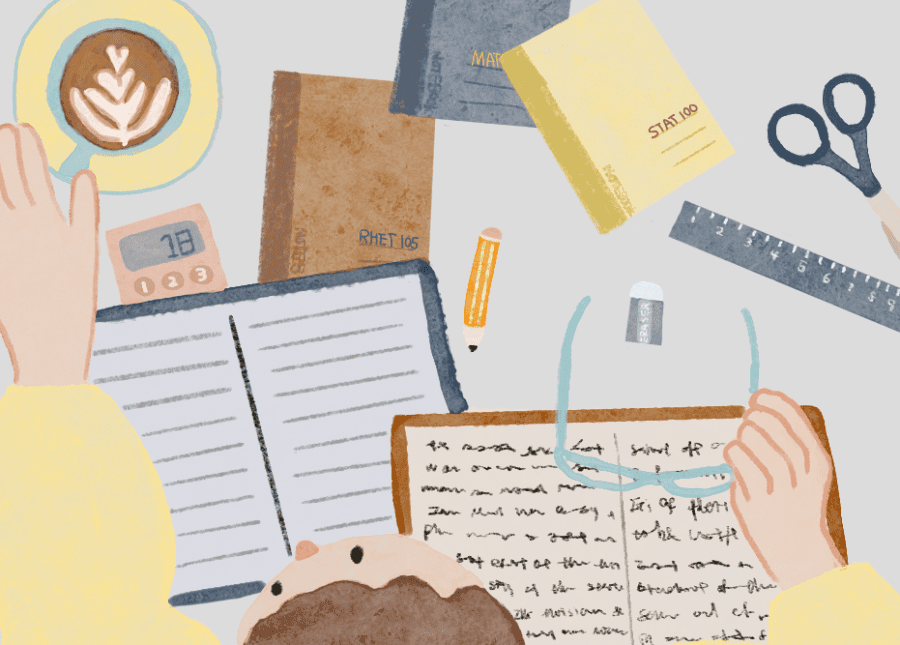Tips on how to study effectively
Dec 13, 2022
With finals rolling around, many students will be cramming their time to study and consume course information in the most efficient way possible. Students all over campus will be burying themselves in books, numbers and all kinds of symbols to finish off their semester triumphantly.
But what are the most optimal ways to study?
Make a study schedule
Procrastination is a big factor in limiting a student’s potential. Planning a schedule for studying ahead of time can help prevent questions like ‘should I study right now, or later?’
Give yourself a reward
Get The Daily Illini in your inbox!
Something as small as buying a cup of coffee or allowing an episode from a comfort show can be rewarding and could promote productivity. A reward waiting for you can be a great motivator to get the hard work done.
Try out different methods
Simply reading notes from a lecture might not be enough for some people. Try engaging your brain by using flashcards or taking a practice test.
Study before sleep
Studying right before bedtime can help promote better memory of the learned subject. It is a positive thing to rehearse any information that the student will find useful an hour prior to going to bed.
Choose the right environment
Your environment is very important. Understanding where motivation and concentration are most productive is necessary. For some students, they may study well at busy coffee shops on campus, like Espresso Royale or Cafe Paradiso. For others, they may study best at the Main Library or at the Grainger Engineering Library.
Stay away from all-nighters
The most important factor is not how long someone studies, but how they use and structure their study time. Long study sessions can lead to a lack of concentration and retention of learning. Short yet productive study sessions that are spaced out could be more effective for students.
Study with others
Committing to a study group can help students stick to their study schedules. Having a commitment to a group of hardworking students holds them accountable and promotes an encouraging environment.
Know the right material to study
Review the syllabus and listen to the instructor. Check up on emails that might contain updates or information about the upcoming exam. Have an idea of what will most likely be on the exam, and what might not be.
Breaks before a breaking point
Study breaks could increase the quality of the study session. Breaks can not only reduce stress, but they can also prevent you from getting overwhelmed.
Have confidence
Having confidence in your own abilities helps, even if it seems hard during these tough times. Believing and trusting in oneself helps to destress and focus on moving forward.






